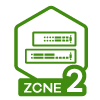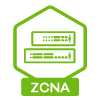What are the use cases of Smart Mesh Network in various scenarios?
 Zyxel Employee
Zyxel Employee



Smart mesh network topology offers flexible, scalable, and reliable connectivity solutions, catering to a wide range of scenarios. Its ability to forward data between nodes makes it exceptionally adaptable to various environments and challenges. Here are specific use cases illustrating the versatility of smart mesh networks:
1. Expanding Coverage in Buildings Without Ethernet Cabling: For some buildings where installing Ethernet cabling is hard or prohibited, a smart mesh network can provide Wi-Fi coverage via wireless. By placing wireless nodes throughout the building, connectivity is seamlessly extended without the need for physical wiring.
2. Providing Internet Access in Outdoor Camping Areas: In camping areas where traditional networking infrastructure is unavailable, mesh networks can offer internet access across wide areas. Deploying mesh nodes throughout the site can ensure campers stay connected, enhancing their outdoor experience with access to online applications, weather updates, and emergency contact.
3. Ensuring Reliable Connectivity Across Campus Buildings: In educational campuses with multiple buildings, laying cables to connect each building can be costly and disruptive. A smart mesh network allows for data transmission across buildings without the need for physical cables, ensuring students and teachers have reliable access to digital resources and communication tools.
4. Facilitating IoT Integration in Smart Homes: In smart homes equipped with a variety of IoT devices, a mesh network can ensure that all devices communicate effectively with each other and with the internet, regardless of their physical location in the house. This eliminates dead zones and provides a uniform connectivity experience throughout the home.
5. Supporting Temporary Events in High-Density Areas: For temporary events such as festivals, fairs, or pop-up markets in high-density areas, setting up a traditional network infrastructure may not be feasible. Mesh networks can be quickly deployed to provide robust wireless connectivity for vendors, attendees, and event organizers, ensuring smooth operation and enhancing the overall event experience.
Each of these scenarios highlights the unique advantages of smart mesh networks, including their flexibility to adapt to different environments, ease of deployment, and capability to provide stable, widespread connectivity without relying on traditional wired infrastructure.
Categories
- All Categories
- 442 Beta Program
- 2.9K Nebula
- 219 Nebula Ideas
- 127 Nebula Status and Incidents
- 6.5K Security
- 601 USG FLEX H Series
- 344 Security Ideas
- 1.7K Switch
- 84 Switch Ideas
- 1.4K Wireless
- 52 Wireless Ideas
- 7K Consumer Product
- 298 Service & License
- 480 News and Release
- 92 Security Advisories
- 31 Education Center
- 10 [Campaign] Zyxel Network Detective
- 4.8K FAQ
- 34 Documents
- 87 About Community
- 105 Security Highlight